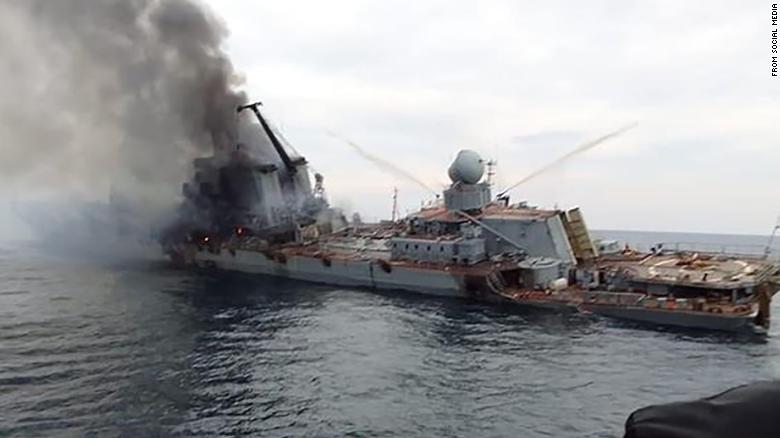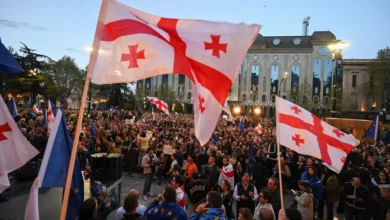
Washington (CNN) – Two months into Russia’s war in Ukraine, the Biden administration has increased the amount of intelligence it shares with Kyiv, contributing to successful strikes against senior Russian leaders and the Russian Navy’s flagship, the Moskva, sources familiar with the intelligence sharing tell CNN.
But the effort raises questions about how far the White House is willing to go to help Ukraine fight the Russians while also trying to avoid provoking Moscow and getting drawn into the conflict.
Administration officials insist there are clear limits on the intelligence it shares with Ukraine, including a ban against providing precision targeting intelligence for senior Russian leaders by name, part of a White House effort to avoid crossing a line that Moscow may view as too escalatory.
Yet some current and former officials have suggested that the limits the Biden administration have drawn are arbitrary, in part because the end result is the same — Ukrainian strikes that kill senior Russian leaders. On top of that, any US assessment of what actions might provoke Moscow depends on the thinking of just one man, Russian President Vladimir Putin.
“You’re trying to put on your Vladimir Putin hat and try to see, what does he see as crossing a red line?” said retired Lt. Gen. Robert Ashley, a former head of the Defense Intelligence Agency. “That red line is one that probably exists only in Putin’s head — and it may not be something that he’s even thought his way through or conveyed.”
Sources familiar with the administration’s approach say the decisions to gradually broaden the intelligence it is willing to share have been primarily based on the judgments of Biden administration officials rather than any changing assessments about how escalatory Russia might view a given action.
They also reflect the evolving reality on the ground in Ukraine. US intelligence-sharing guidelines have been updated in recent weeks, for instance, to help Ukraine conduct offensive operations inside the Donbas region, where Russia has refocused its military efforts after failing to capture Kyiv.
CNN asks Kirby about US intel used by Ukraine to sink Russian warship
CNN asks Kirby about US intel used by Ukraine to sink Russian warship 03:17
“I wouldn’t describe any line as thin or imaginary,” Pentagon press secretary John Kirby told CNN’s Briana Keilar on “New Day” Friday. “The intelligence that we provide to Ukraine is legal, is lawful. It’s legitimate and it’s limited. And we’re very careful about what we share and when we share it.”
The Biden administration has also provided billions of dollars in weapons and has publicly acknowledged it is giving tactical intelligence to the Ukrainians. But as the war has continued and Ukraine has taken out numerous high-profile targets, the White House has sought to carefully calibrate how it describes the impacts that intelligence has on the battlefield.
To some former officials, it’s a distinction without a difference.
“Everybody knows we’re providing intelligence sharing. We’re providing intelligence on targeting for artillery, for other systems that the Ukrainians are using, and so I don’t see this in any way as some kind of escalation in the relationship,” former Defense Secretary and former CIA Director Leon Panetta told CNN’s Victor Blackwell on Friday. “I see it, basically, as maintaining the relationship that we established at the beginning of this war.”
Panetta added: “We’re obviously providing the missile systems, we’re providing the artillery, we’re providing the Stingers and the other weapons that are being provided, but it’s the Ukrainians who decide how to use it and what targets to fire at. And that, very frankly, is what war is all about.”




